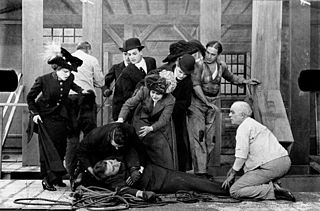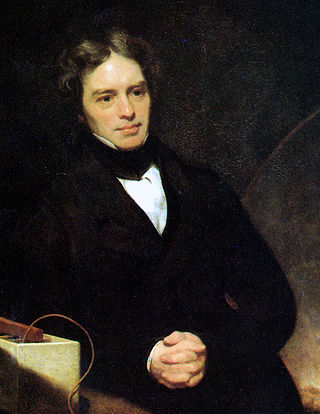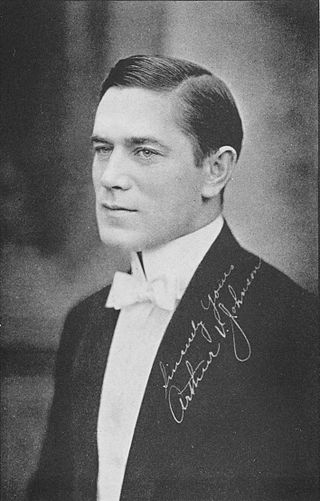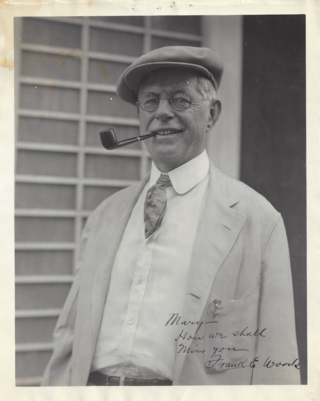
A Corner in Wheat is a 1909 American short silent film which tells of a greedy tycoon who tries to corner the world market in wheat, destroying the lives of the people who can no longer afford to buy bread. It was directed by D. W. Griffith and adapted by Griffith and Frank E. Woods from a novel and a short story by Frank Norris, titled The Pit and A Deal in Wheat.

Samuel Langhorne Clemens, known by the pen name Mark Twain, was an American writer, humorist and essayist. He was praised as the "greatest humorist the United States has produced," with William Faulkner calling him "the father of American literature." His novels include The Adventures of Tom Sawyer (1876) and its sequel, Adventures of Huckleberry Finn (1884), with the latter often called the "Great American Novel." Twain also wrote A Connecticut Yankee in King Arthur's Court (1889) and Pudd'nhead Wilson (1894), and co-wrote The Gilded Age: A Tale of Today (1873) with Charles Dudley Warner.

Roughing It is a book of semi-autobiographical travel literature by Mark Twain. It was written in 1870–71 and published in 1872, as a prequel to his first travel book The Innocents Abroad (1869). Roughing It is dedicated to Twain's mining companion Calvin H. Higbie, later a civil engineer who died in 1914.

The Faraday paradox or Faraday's paradox is any experiment in which Michael Faraday's law of electromagnetic induction appears to predict an incorrect result. The paradoxes fall into two classes:

Arthur Vaughan Johnson was a pioneer actor and director of the early American silent film era, and uncle of Olympic wrestler and film actor Nat Pendleton.

In fluid dynamics, disk loading or disc loading is the average pressure change across an actuator disk, such as an airscrew. Airscrews with a relatively low disk loading are typically called rotors, including helicopter main rotors and tail rotors; propellers typically have a higher disk loading. The V-22 Osprey tiltrotor aircraft has a high disk loading relative to a helicopter in the hover mode, but a relatively low disk loading in fixed-wing mode compared to a turboprop aircraft.
Brute Force is a 1914 short silent drama film directed by D. W. Griffith, and starring Robert Harron and Mae Marsh. The film was shot in Chatsworth Park, Chatsworth, Los Angeles, California. It is a story of cavemen and dinosaurs, and perhaps the first live-action dinosaur film. It is a sequel to Griffith's earlier film, Man's Genesis (1912).

"The Luck of Roaring Camp" is a short story by American author Bret Harte. It was first published in the August 1868 issue of the Overland Monthly and helped push Harte to international prominence.
My Hero is a 1912 American short silent Western film directed by D. W. Griffith and starring Dorothy Gish.

Frank E. Woods was an American screenwriter of the silent era. He wrote for 90 films from 1908 to 1925. He first became a writer with the Biograph Company. Woods was also a pioneering film reviewer. As a writer, his contributions to film criticism are discussed in the 2009 documentary, For the Love of Movies: The Story of American Film Criticism. Woods worked for the Kinemacolor Company of America, directing at their Hollywood studios and writing the script for the unreleased The Clansman (1911). He was also known for his screenplay collaborations with D. W. Griffith, including the co-scripting of The Birth of a Nation. He later publicly expressed regret for his involvement with the film. He is interred in the Hollywood Forever Cemetery in Hollywood, CA.
Two Men of the Desert is a 1913 American short silent Western film written and directed by D. W. Griffith. Based on a story by Jack London, the film was shot on location in Death Valley. Two Men of the Desert is now presumed lost.

"A Murder, a Mystery, and a Marriage" is a short story written by Mark Twain in 1876. It was published in a very small, unauthorized edition in 1945, with an authorized edition not appearing until 2001.
A Timely Interception is a 1913 American short drama film directed by D. W. Griffith.
The Indian Brothers is a 1911 American short silent drama film directed by D. W. Griffith, starring Frank Opperman and featuring Blanche Sweet.
The Stuff Heroes Are Made Of is a 1911 American short silent drama film directed by D. W. Griffith and Frank Powell and starring Blanche Sweet.

The Goddess of Sagebrush Gulch is a 1912 American short silent Western film directed by D. W. Griffith and starring Blanche Sweet.

Huckleberry Finn is a surviving American silent dramatic rural film from 1920, based on Mark Twain's 1884 classic Adventures of Huckleberry Finn. It was produced by Famous Players–Lasky and distributed through Paramount Pictures. William Desmond Taylor directed Huckleberry Finn, as he had the 1917 film version of Tom Sawyer, using a scenario written by Julia Crawford Ivers, who also had been the writer for Tom Sawyer.
The Politician's Love Story is a 1909 short drama film directed by D. W. Griffith for the Biograph Company.

The Adventures of Tom Sawyer is an 1876 novel by Mark Twain about a boy, Tom Sawyer, growing up along the Mississippi River. It is set in the 1840s in the town of St. Petersburg, which is based on Hannibal, Missouri, where Twain lived as a boy. In the novel, Sawyer has several adventures, often with his friend Huckleberry Finn. Originally a commercial failure, the book ended up being the best-selling of Twain's works during his lifetime. Though overshadowed by its 1884 sequel, Adventures of Huckleberry Finn, the book is considered by many to be a masterpiece of American literature. It is alleged by Mark Twain to be one of the first novels to be written on a typewriter.
A Welcome Intruder is a 1913 silent film short directed by D. W. Griffith and produced by the Biograph Company.
 The Death Disk public domain audiobook at LibriVox
The Death Disk public domain audiobook at LibriVox 











